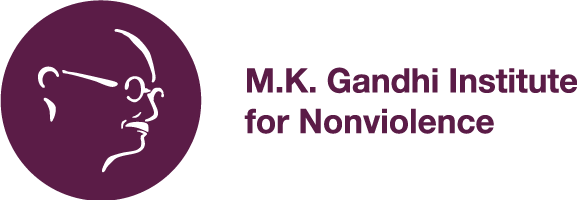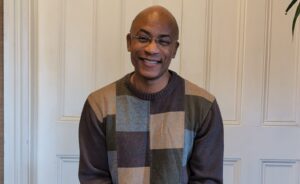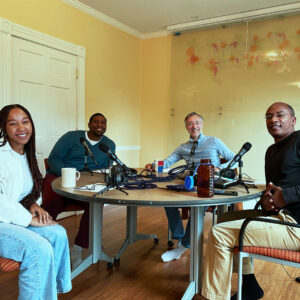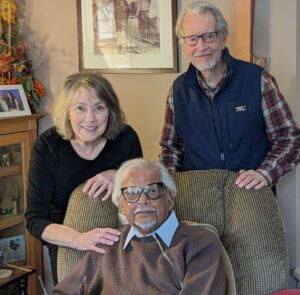On May 29, 2015, Hoody, Kit, and I left Rochester for the Gandhi Legacy Tour: South Africa, a two week long excursion to learn about the twenty-one years Mohandas Gandhi spent in South Africa, and the legacy he left. As part of a larger traveling group, we were led across South Africa by Arun Gandhi, Mohandas’ fifth grandson, and Lynnea Bylund, director of the Gandhi Legacy Tours.
Hoody, Kit, and I were able to take part in the journey as a result of the generosity of Arun, Lynnea, and so many others who gifted us with funds for the flight.
Below are twenty-one short reflections from those two weeks we spent abroad.. While it is nigh impossible to capture something as rich and fleeting as personal experience, this is an attempt to represent my experience in a series of interrelated fragments.
May my experience move you in some way.
Peace,
Malik
- The days leading up to departure were rife with excitement and anxiety. Some mornings, I would waken in near certainty that my heart would stop. I’d never left the boundaries of the United States before, the farthest I had traveled was from one coast to the other. But this was different; this was two weeks in another country. Two weeks on the African continent. A two week sojourn in South Africa.
- As tempting as it is to refer to Africa as ‘the Motherland’, I will resist that temptation. Growing up in DC taught me enough about tensions within the African diaspora that, upon setting foot on the continent, I didn’t expected to be embraced by anyone of African descent with broad smiles and warm arms. Being Black simply isn’t enough to bridge the gaping chasms plaguing the diaspora
- Our plane from New York City to Dubai included an on-flight symphony of languages, dancing from one end of the plane to the other; English, Arabic, languages unidentifiable to my inexperienced ear, whirled from any given direction. Wives speaking in hushed tones to husbands and children, bright-eyed flight attendants offering bites of food and sips of water to fatigued passengers, defiant children babbling to themselves, and each other, to ward off the insipid curse of sleep.
- What if told you I’d fallen in love with another country? What if I told you I crave the warmth of another sun?
- We were in Johannesburg for two days before departing for Durban, the city with the largest Indian population of any city outside of India. Durban— Arun Gandhi’s hometown. Arun speaking to our traveling group, upon exiting Durban’s airport, his face shimmering with buoyant light, ‘Welcome home everybody’.
- Umhlanga. A resort town north of Durban leaning on the Indian Ocean. Throughout the trip, Hoody and I shared rooms. Our room in Durban came with view of the Indian Ocean beautiful enough to question its existence as real or hallucination— how the ocean blushed a deep cerulean; how the waves grasped for the shore so passionately; how the sun in motion transfigured the water into a vast blanket of fire, benign and smoldering.
- Astounding people were sculpted within the gauntlet of Apartheid-era South Africa; Nelson Mandela, Winnie Mandela, Archbishop Desmond Tutu, and Steve Biko, just to name a few. However, have you heard of the man who co-founded the first educational institution opened by Black South Africans, John Dube? The first African and non-European/American to be awarded a Nobel Peace Prize, Albert Luthuli? Men who, in their own ways, worked against The Powers That Be to carve out their own legacies in history- do you know of them? If not, will you now seek that knowledge out?
- My 50mm lens perished at Mohandas Gandhi’s former South African home; I was attempting to capture scarlet flowers blooming on a tree branch. Suddenly, the motor that allows the lens to focus on subjects gave out. Instead of rotating around the circumference of the lens with a mechanical steadiness, the focus ring pitifully sputtered and refused to focus on the broad, silken petals. I didn’t want a blurry picture, I didn’t want some half-assed exposure and pass it off as ‘artsy’. I wanted those flowers in full glory.
- I pushed it. Pushed it beyond its limits. Eventually, the focus ring wouldn’t sputter. It wouldn’t make a sound. The focus ring wouldn’t move, wouldn’t do anything. My 50mm lens was— is, useless.
- Before my 50mm lens died, I took a photo of Arun standing in front of the room he had been birthed in. Of course, the room looks nothing like it did when Arun was an infant, or a teenager even. Arun’s old Durban home has been renovated into a museum dedicated to helping people understand the elder Gandhi’s path from middle-class lawyer to willingly impoverished justice seeker. The museum is extraordinary; brimming with easily missed influences and nuances of the man’s elaborate life.
- Eventually, I’d like to return to Durban to trail Ela Gandhi, Arun’s younger sister, with pen and pad in hand. I’d write down nearly anything she says, and archive her brilliance with the attentiveness required of such a task.
- In my first encounter with Ela, I lodged my foot into my mouth. Our traveling group ventured out to the Phoenix Community Centre to participate in her 75th birthday celebration. Ela met our group at the door. After giving her a hug, I exclaimed ‘Happy Birthday!’. After giving me a confused look, Ela said, with a startling balance of care and austerity, ‘Oh! My birthday is in two days dear.’. …Oops.
- There were mountains, trees, hills, expanses of lush vegetation for miles. Wind, shadow, and sun were in steadfast competition- which would gain mastery over the climate? Which would freeze, burn, or batter us into submission? We were in an open air vehicle, collectively failing to maintain a prolonged quiet. ‘The animals will not come if you are noisy’ our guide said.
- Luckily, our noisiness didn’t keep the wildlife away. In the expanse of brown and green before us were zebra loping across the grass; a herd of elephant, one of whom faced our vehicle and raised its trunk, perhaps as a greeting- more likely this was a gesture of warning. Gazelle! An abundance of females and a lone male with stunning facial markings. He approached the side of our vehicle and tilted his neck upward to peer inside, perplexed, perhaps, by the strange machine thundering across the terrain. The gazelle were very thin, seemingly frail, yet capable of surviving alongside leopards and lions.’They’re like French fries to the lions’, I wish our tour guide hadn’t said that…
- In South Africa, I am not Black. I’m considered ‘Colored’, a category which generally refers to people of mixed race heritage. But I’m neither Colored nor mixed. Both my parents are Black, both born in the United States.
- I tried explaining how race operates in the United States to two people in South Africa. Both people were Black. Both people were men. ‘…so, in the United States, you’re Black if you’re of African descent’. Both attempts at explanation resulted in my being laughed at, perhaps the mere thought of someone of my complexion being considered Black is cause for hysterics. ‘You’re not Black! You’re Colored!’, a very dark-skinned Ghanaian proclaimed after a scornful laughing fit.
- I decided to shift our conversation away from race, particularly, my racial identity.
- Are there etiquette manuals for people of color traveling abroad? I wholeheartedly wanted to feel connected to the people I met in solo ventures in a way that didn’t center my American-ness. I’m assuming that most people I met assumed I was an American with more privilege than I actually have. How would people have reacted if I had confessed, ‘No, I’m only here as a result of a serendipitous amalgam of luck, hard work, and generosity.’. Intuition tells me this confession may have been met with various levels of confusion and scorn.
- ‘Are you from Brooklyn!?’ ‘No, I’m from DC— Washington D.C! The capitol…’ ‘Oh! have you met Obama?’ ‘No…’
- There were so many beautiful, warm, welcoming people, especially in Sharpeville. Arun gave a workshop to a group of people in Sharpeville in the 90’s, and they have meticulously tended to those seeds Arun sowed. They now have a group of people dedicated to bolstering the Sharpeville community; the entrepreneurs, the bead-makers, the sculptor, the leather-worker, the theatre director who converted his garage into an acting stage and studio. They were all so dazzling—all so dedicated. I must to go back, eventually.
- Our traveling companions were wonderful as well! The laughs we shared, some awkward moments, nursing one another as we passed our ailments around. While in recovery from my own bout of illness, which resulted in me vomiting on the bathroom floor in Hoody and I’s Durban hotel room, I was resting constantly. On the bus, I sat beside Sheila, one of the older women taking part in the trip. After a long day of travel, I was unknowingly lulled into the balmy arms of sleep. I woke up on Sheila’s thin shoulder. Embarrassed, I began apologizing profusely. Sheila laughed it off and assured me it was fine. Later, on the tour’s final day, right before Hoody, Kit, and I set off for our departure flight, Sheila told me my sleeping on her shoulder was her favorite moment of the trip.
- And, here, I will end the reminiscing. So many details left untouched. So many stories, upon stories, to tell…




